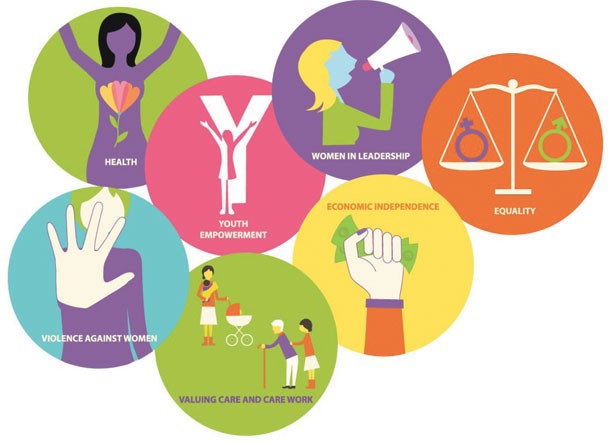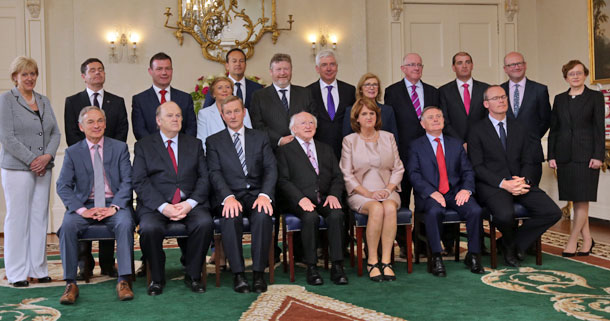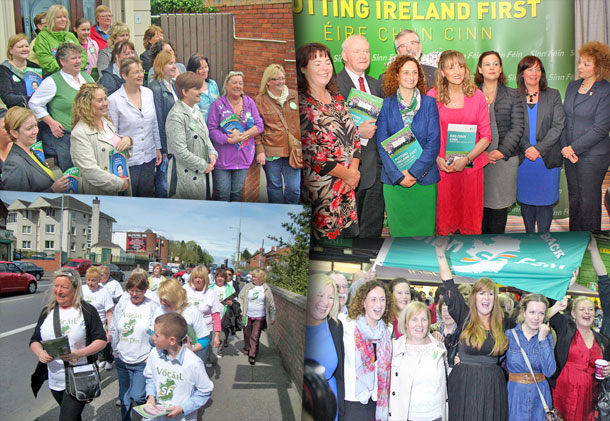1 September 2014 Edition
Barriers to women block progress
Why we need a total transformation of decision-making structures in Ireland

August’s CSO report corroborates what the NWCI has been saying for years: women are under-represented across major areas in Irish life, including the judiciary, and state and corporate boards
Louise Glennon is the Women in Politics and Decision-Making Officer at the National Women’s Council of Ireland
IRELAND has one of the best-educated female populations in Europe: 57.9% of Irish women aged 30 to 34 have a third-level education, compared to 44% of Irish men of the same age. Now take a look at the key decision-making positions in Ireland and ask yourself why, in 2014, the majority of them are still held by men.
The Mid Term Review of the National Women’s Strategy ‘Towards Gender Parity in Decision-Making in Ireland’ confirmed that one of the biggest barriers to women’s advancement in key decision making positions was the belief that we have already achieved gender equality and that, if someone is good enough, they’ll get to the top. Evidently, this is not the case for many women, who are held back by traditional gender roles.
There are many examples of women being held back by traditional gender roles and stereotypes.
A CSO report, published only in August, states that 98.2% of those looking after home or family are women. This is the result of a number of issues, including the gender pay gap, which currently stands at 16%, and the lack of affordable childcare in Ireland, both of which are huge barriers to women’s advancement and perpetuate the traditional roles that women and men tend to play in homes across Ireland.
This report corroborates what the National Women’s Council of Ireland (NWCI) has been saying for a number of years: women are under-represented across major areas in Irish life, including the Civil Service, the diplomatic corps, the judiciary, and state and corporate boards.

• The majority of key decision-making positions are held by men
We need real and immediate solutions to overcome the very substantive barriers and obstacles women face.
Last March, the NWCI published A Parliament of All Talents: Building A Women-Friendly Oireachtas, which received widespread, cross-party support. The conclusions reached were stark. The long sitting hours of the Oireachtas, combined with the clientele-style nature of local politics which requires TDs to be available to voters ‘day and night’, can make politics incompatible with personal and family life.
This was echoed in the Mid-Term Review, which recommended the provision of maternity leave for at least 18 weeks, during which a guaranteed vote-pairing arrangement with opposing parties would be provided and a review of the sitting times of the Dáil and Seanad.
Mary Lou McDonald, in her contribution to ‘A Parliament of All Talents’, wrote about her shock at finding that there was no provision for maternity leave when she was an MEP, and of a another politician telling her “politicians don’t take maternity leave”. The time for a women-friendly, family-friendly parliament has long passed. We need immediate action.

• The time for a women-friendly, family-friendly parliament has long passed
With regards to women on boards, NWCI supports the finding that a talent bank of women suitable for consideration for appointment to state boards be developed and maintained, and considers the target of 40% for the representation of women on state boards to be a crucial. We particularly welcome the recognition and commitment to address the obvious gender imbalance on finance and public expenditure boards, and the requirement of each Government department to report on progress every six months. These reports will be critical to accountability and to real progress.
Women have been vastly under-represented in Irish politics throughout the history of the state. At 16%, there are more women in the Dáil now than ever before. Numerous reports produced by numerous governments have shown that women at the decision-making table are good for business and good for society. It is crucial that women can view politics as a viable option where they can have a meaningful impact.
Women deserve and need to be at the table where decisions that affect all our lives are made. That women have not been properly integrated into the Irish parliament has had a negative effect on the rest of society, with women excluded from vital economic and social discussions, and disillusioned with the political process.
We live in a representative democracy yet, as it stands, our parliament lacks virtually any diversity. The Oireachtas must introduce policies that have the principle of equality at their core so that it can be truly representative of all citizens.




